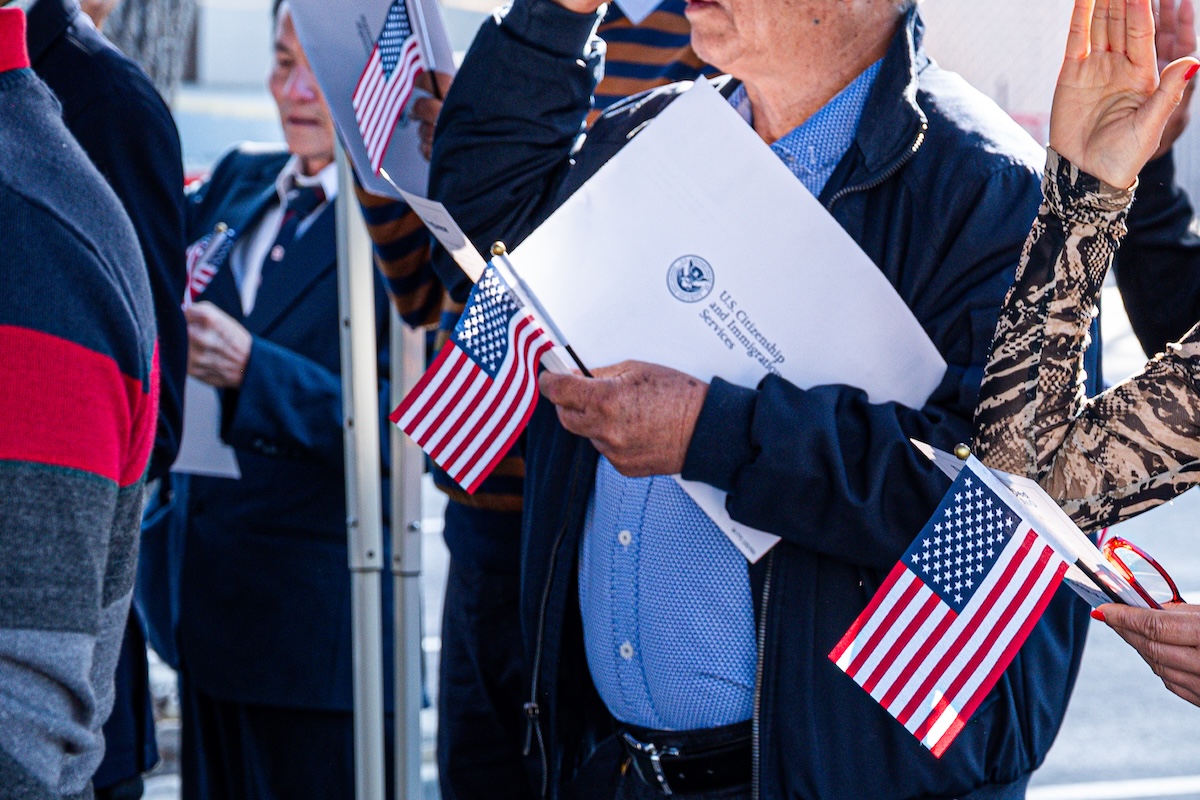Complying with the bevvy of new immigration-related pronouncements out of the Trump White House can seem an impossible task. Instructions are either contradictory, legally incorrect or just plain confusing.
More alarming, the orders and implementing regulations raise serious concerns over privacy for citizen and non-citizen alike.
Trump’s Inauguration Day Executive Order 14159, “Protecting the American People Against Invasion,” is a case in point. A provision in the order, the “Alien Registration Requirement,” compels all non-citizen residents to fill out a new USCIS form (G-325R). It is riddled with ambiguous questions and legal errors in instructions for filling it out.
Some examples:
Q. 14: Since entry, in what activities have you been engaged? This is an extraordinary fishing expedition where “activities” are undefined (even in the online USCIS glossary), leaving registrants to worry about what to report, what not to report, and the consequence of omissions. It is also an open invitation to volunteer a broad range of activities where answers may or may not provide evidence of criminal behavior – a clear violation of the applicant’s 5th amendment rights.
Q. 15: In what activities do you intend to engage between now and your expected date of departure? Even more disturbing, this search for unverifiable notions about behavior an applicant may be considering is a further invitation to provide personal information the government might eventually use against you.
Section 3: Question 1 Asks about arrests, citations, and detentions—not about criminal convictions. Despite an opportunity for an explanation, the registrant may not know the reason, and explanations about arbitrary and/or mistaken detentions may not be accepted.
Q. 18-35: Questions about Parents and Spouse The registrant is asked to provide key facts about some family members who may have decided not to register. This facilitates ICE or CBP targeting not only households where no one is documented but, also, the millions of mixed-status households that include US citizens. This is a first step toward invading U.S. citizens’ privacy.
Just as troubling, the registration requirement does not simply target immigrants who lack legal status. It targets many who are now lawfully present but may soon find themselves at risk when visas are arbitrarily revoked, as is now being contemplated for foreign-born Harvard students, some recipients of humanitarian parole, TPS beneficiaries, and others.
One contradiction in the regulations is particularly disturbing. It is unclear whether a non-citizen may have met the registration requirement by submitting an official application — a request for an Employment Authorization Document, for example, which is considered a “registration” document — or do they need to wait until they receive the requested document, a process that is often unaccountably delayed and out of their control?
A recent analysis by the Immigrant Legal Resource Center shows the government is, itself, confused about this.
Meanwhile, the registration requirement has ushered in more anti-immigrant rhetoric.
The official preamble justifying the registration requirement accuses migrants of posing “significant threats to national security and public safety,” of “committing vile and heinous acts against innocent Americans,” and that “their presence in the United States has cost taxpayers billions of dollars.”
Study after study after study has in fact demonstrated that migrants commit fewer crimes than their American-born counterparts and that immigrants — undocumented or otherwise — contribute billions in taxes to U.S. coffers.
Nevertheless, the saber-rattling concludes with a final threat and effort to eliminate due process for immigrants, asserting that those who fail to comply will not have any legal recourse to defend themselves.
Those targeted are understandably confused. Should non-citizens comply or risk being charged with noncompliance as they wait to see what happens as lawsuits challenging the regulations make their way through the courts.
There are also concerns over whether the information shared with USCIS could be used by the administration to target political enemies — as happened with the Tufts university student, Rümeysa Öztürk, arrested in March by ICE for publishing an article in a school newspaper critical of Israel’s war in Gaza. (Öztürk was freed earlier this month after a federal court judge ordered her release.)
Immigrant advocacy groups are working to offer guidance. The National Immigration Law Center has explained that registration is extremely dangerous for most undocumented immigrants. The Immigrant Legal Resource Center has developed an excellent practice advisory for immigration lawyers detailing how non-citizens’ decisions about compliance may be risky even for many lawful permanent residents.
Similar official communication — even when arbitrary and untested legally — has often opened the door for authoritarian regimes to secure unbridled levels of power.
In that regard the Alien Registration Requirement marks an ominous step toward an authoritarian invasion of all Americans’ privacy, one that would make it easier for Trump or future administrations to target political enemies and their families: judges who rule against them, scientists who speak up for the value of sound research, lawyers who sue the government, non-profits that pursue “woke” agendas.
Outspoken opposition to the national registry of non-citizens will be a valuable investment in protecting the constitutional rights and rule of law that the Trump administration consistently ignores.
Conversely, the consequence of allowing the registry to go forward will not be to protect the United States from invasion by “aliens” but, rather, to invade the privacy of all Americans without any legitimate rationale.
Edward Kissam is a leading researcher and advocate for strategies to deal with health issues impacting immigrant communities. He has led research on farmworker and immigrant issues sponsored by the Department of Labor, the Commission on Agricultural Workers, and the National Institute for Food and Agriculture. He is also a trustee of the WKF Charitable Giving Fund.





